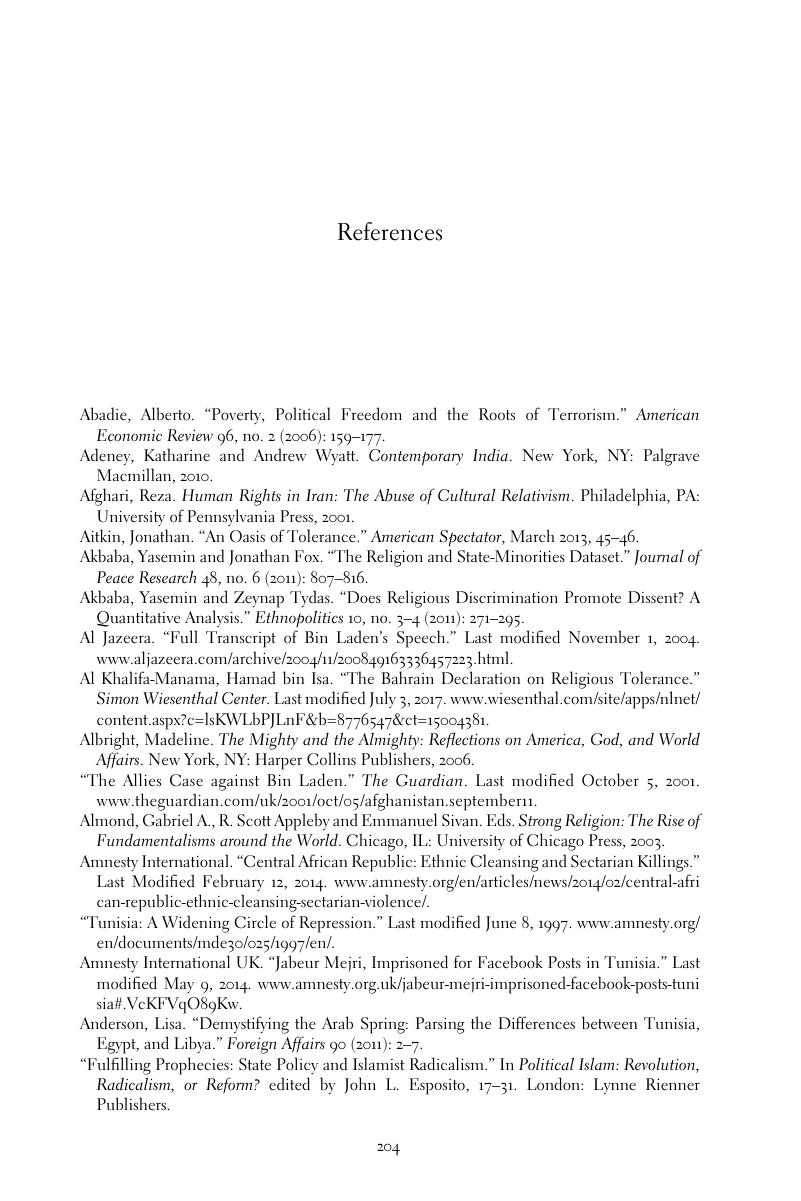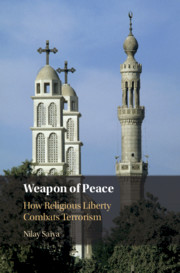Book contents
- Weapon of Peace
- Weapon of Peace
- Copyright page
- Dedication
- Contents
- Figures and Tables
- Acknowledgments
- Introduction: Religious Resurgence, Repression and Resistance
- 1 A Global View of Religious Repression and Terrorism
- 2 Minority Religious Discrimination and Terrorism across Faith Traditions
- 3 Majority Religious Cooptation, Terrorism and the Arab Spring
- 4 A Weapon of Peace
- 5 Religious Liberty and American Foreign Policy
- Appendix
- References
- Index
- References
References
Published online by Cambridge University Press: 10 August 2018
- Weapon of Peace
- Weapon of Peace
- Copyright page
- Dedication
- Contents
- Figures and Tables
- Acknowledgments
- Introduction: Religious Resurgence, Repression and Resistance
- 1 A Global View of Religious Repression and Terrorism
- 2 Minority Religious Discrimination and Terrorism across Faith Traditions
- 3 Majority Religious Cooptation, Terrorism and the Arab Spring
- 4 A Weapon of Peace
- 5 Religious Liberty and American Foreign Policy
- Appendix
- References
- Index
- References
Summary

- Type
- Chapter
- Information
- Weapon of PeaceHow Religious Liberty Combats Terrorism, pp. 204 - 224Publisher: Cambridge University PressPrint publication year: 2018

